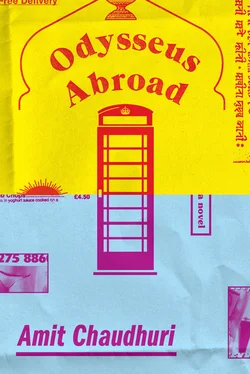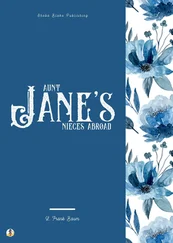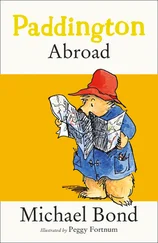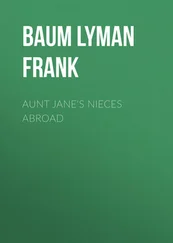—
He entered and turned to the half-ajar door on the left. His uncle shuffled behind him, gentlemanly, slow. The looped sash of the dressing gown came undone, revealing, underneath, the slight frame in the dark maroon pyjama suit.
“You’re nowhere near ready,” said Ananda, taking on a patrician, indulgent air. “It’ll be four soon. When are we going out ?”
“Darao he,” said his uncle, in his mock-literary way. Switching to English: “I haven’t finished yet!” A look of annoyance on his face. “Wait, sit down, let me get you something.”
Ananda looked around him. The centre table, or dining table, or maybe the work table — whatever it was — had chairs on two sides, one bearing a pile of books on shipping law. Noticing Ananda’s beady stare, his uncle made to remove this low stack, at which Ananda pulled out the other chair and said, “That’s fine, that’s fine, I’ll sit here.”
He lowered himself, distrustful of the surface. He patted and slapped it. The smallish table was covered neatly with pages from newspapers in lieu of a tablecloth. There were more books on it: a familiar, creased pile of the Pan Book of Horror Stories , a half-open novel by Stephen King, a copy of the Sun that seemed to have been recently consulted, a shaving mirror. Ananda looked away. The bed was right next to him, against the wall, not properly made but not wholly neglected either, the tucked blanket that would have been pulled down slightly at night pulled up again, the sheet and pillow still bearing his uncle’s impress.
Ananda could see him. He was rummaging in the kitchenette. The bedsit was divided in two: this room was three quarters of it, then came the kitchenette through a doorway with no door.
He returned brandishing a can. “Coke?” he asked. “I’m all right,” said Ananda: he wasn’t going to drink Coke in the afternoon — it seemed like a scandalous thing to do. Ananda knew his uncle had stocked up on Coke to appease Ananda’s mother — from stirrings of guilt, because he so often insulted her — ever since he’d realised that she liked the drink. “Are you sure ?” he asked, drawing out the word “sure” like a melancholy Bengali syllable. Ananda kept shaking his head. “Would you like a Jaffa cake then? Ba Mr. Kipling- er almond slice?” He’d become very hospitable — not overnight, but inexorably. He had a very personal notion of hospitality, though. Having long fended for himself with only a degree of success, he threatened to rain a small range of confectionary on Ananda. This was linked to his own taste rather than his guest’s (the Coke was an exception) — since he had a sweet tooth, it largely comprised cakes.
—
“Guess what I had for breakfast,” said his uncle. Although Ananda knew the answer, and knew his uncle knew he knew the answer — as he asked the question of his nephew each time they met up and the answer was the same — he pretended courteously not to know, because he knew his uncle wanted to tell him again. Epic theatre . The point being not to learn a new story, but to hear it, with recognition, recited for the umpteenth time. So with audiences of epic sagas, who’d been told the tale ad absurdum, knew the lines by heart, and delighted at being told again.
“Coffee with a bit of cream and eleven spoons of sugar, and a quarter of a toast with half a spoon of honey.” He looked distant and amused — his hunger had been exacerbated by his inadvertent mention of the Jaffa cakes. “I haven’t eaten anything since then. I’m burning with hunger!” He seemed pleased at his feat. Pleased, because his diet followed some theory of life — to do with subsistence, staying fit and lean (he worried uninterruptedly about how he looked), and with maximising pleasure when he ate in the evening. Even then, prolonging and deferring pleasure would take precedence over killing hunger; he’d chew with infuriating slowness, holding himself in check and wading into a tantalisingly dilatory frame of time. If Ananda were eating with him, he’d be distracted from his own meal by the strangely frustrating sight of his uncle chewing. All things by dinner were universally appetising (“I could eat a horse!” he’d say in restaurants or when he came to have dinner at Warren Street), and he’d scoff at Ananda’s likes and dislikes in food as finicky. He lived life by a code of punishments and rewards, withholding from himself till he was on the edge, the subsequent act of auto-kindness then feeling like a miracle. Even his living conditions had no relation to his means, but was a deliberate act of deprivation, conditions from which he’d probably release himself one day on a whim.
“Eleven spoons!” said Ananda, disapproving — this was what he dutifully exclaimed each time. Yet he did rise to the bait, there was a genuine reprisal of surprise at his uncle’s — his entire maternal clan’s — consumption of sugar (his grandmother had died of diabetes; his aunt had it; one of his cousins had developed the juvenile variety and took daily self-administered shots of insulin). Rangamama had no sign of the disease. He looked pleased at Ananda’s veiled reprimand. “And now he’ll say,” thought Ananda, “ ‘I hardly slept last night.’ ” Still, he felt a twinge of pity. His mother had chronic insomnia. He’d often discovered her hovering near the dining table at three in the morning. She emerged to nibble at biscuits. Ananda had it: or he wouldn’t have run into his mother. He glanced at the bed. It seemed well-used, frequently inhabited. Beneath it were bottles from which he averted his gaze. They brought a urinous presence to the room, mingled sweetly with aftershave. The bottles made unnecessary that trip at two in the morning to the shared loo in the hallway. Although Ananda heated his flat to tropical levels, he knew the resistance you felt at night, in the chill, to emptying your bladder — the pressure on the sphincter muscle deepened by the very chill — he knew what it was like to coerce yourself to liberate your body from the warm cell of the tucked-in blanket, climb off the bed, drown briefly in the cold, totter to the hallway. There were few more solitary odysseys. Better to do it in a bottle. “I slept badly last night,” grumbled Rangamama.
But he looked well-rested. “When will you be done?” nagged Ananda. His uncle had unbuttoned his shirt, draped it over a chair. He began to dab his arm with a small wet towel. “Haven’t had your bath?” “Bath!” His uncle, as he swept his thin arms and shoulders, demurred to the question. “No,” he admitted. “I had a bath last in April.” It sounded dreadful; but Ananda — when he thought of it calmly, and despite the evidence to the contrary — concluded his uncle wasn’t unclean. Each day he cleaned himself piecemeal, like a cat, pouring water over his head just two or three times annually. Maybe this was a modulation on the native mode of hygiene which he’d internalised after moving to London in 1957, when having a bath used to be a seasonal, fleeting occurrence, like the full moon or daffodils. A troublesome occurrence, according to his mother, recounting the years spent in 24 Belsize Park, in the bedsit upstairs, with his father; how others would leave sooty tidemarks in the tub which you had to implore them to wipe away before you went in. Still, the wallowing in soapy water, in which your dirt particles settled and swam, had created in Ananda’s mother a taste for the warm languor of the bath, and she’d return to it occasionally in Bombay, where middle-class people still possessed ornamental bathtubs though they preferred the straightforward drenching of the shower. His uncle’s ongoing abstinence from bathing might be put down to his general laziness, his slowness, which made the smallest things he did elements in a gigantic journey, or to his unrelenting adoption of the identity of a “black Englishman.”
Читать дальше











